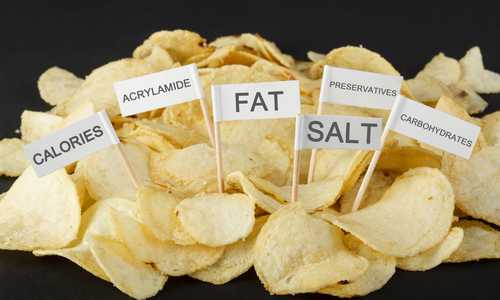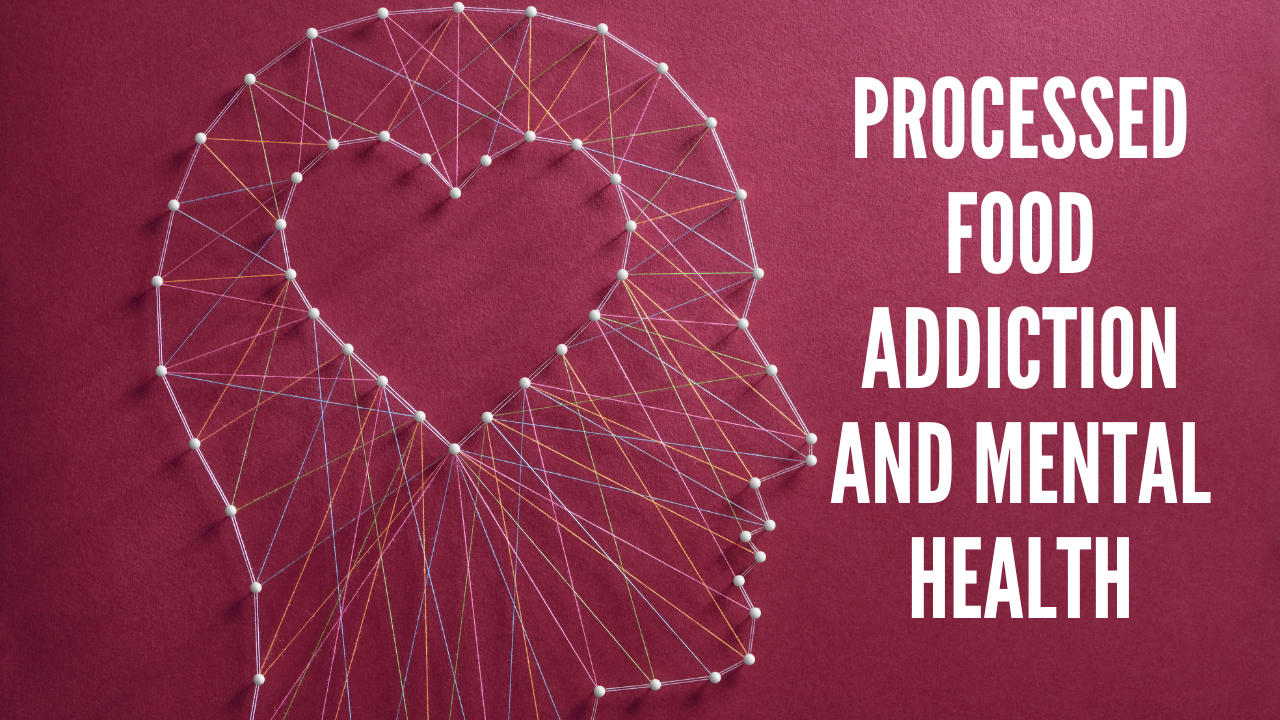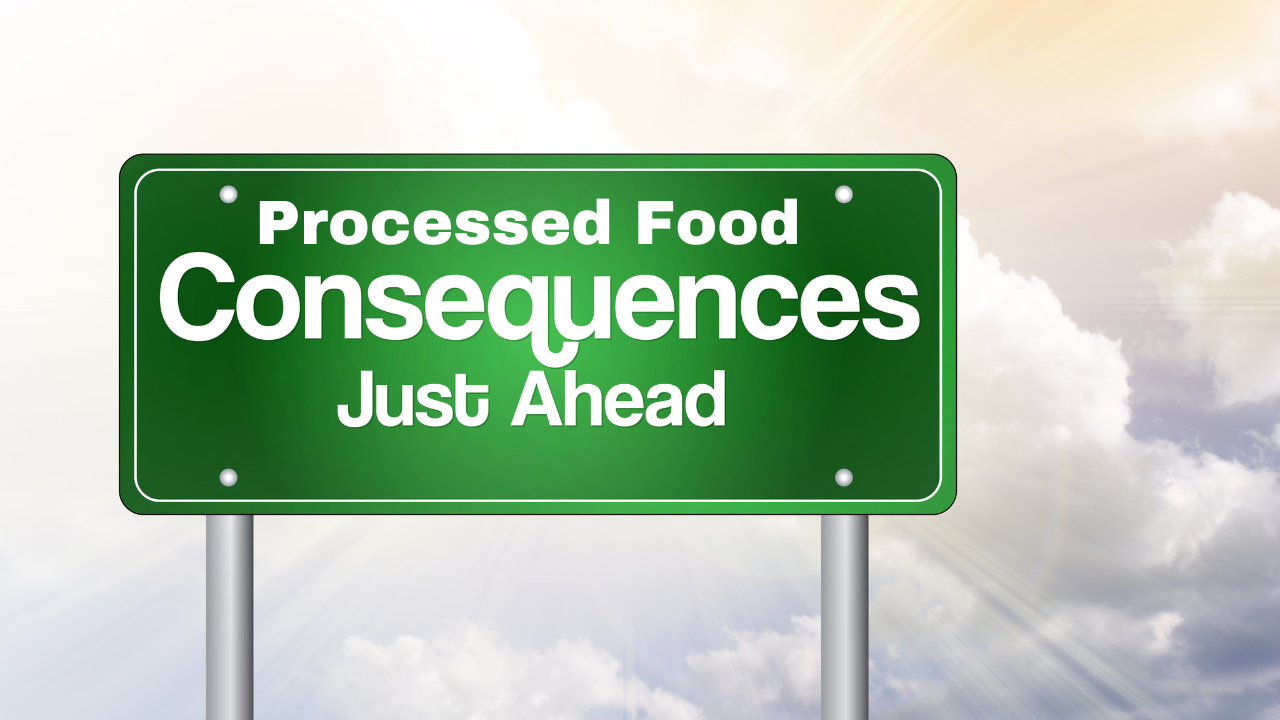Processed Food Addiction And Mental Health | Part 4

Issue No. 47 | Brought to you by the Addiction Reset Community – ARC
Unlocking the secrets of processed food addiction and guiding you to find freedom from food and weight obsession.

21 Sources of Depression & Anxiety… contd.
In the previous two issues of this newsletter, we introduced how processed foods are highly addictive drug-like substances that can alter the brain. So far, we have reviewed 14 of the 21 sources of depression and anxiety and outlined how the Addiction Reset Community can be used to address each source.
In this issue we will conclude by reviewing the final 7 of 21 sources of depression and anxiety, namely:
- Starvation
- Relationships
- Jobs/Work
- Chronic illness & Pain
- Problem-solving
- Children
- Sleep
Starvation
The diet industry promotes food restriction which can cause us to starve ourselves for weight loss. This triggers an innate fear of famine, causing anxiety which is rooted in the need for food security.
The Addiction Reset Community offe...
Processed Food Addiction And Mental Health | Part 3

Issue No. 46 | Brought to you by the Addiction Reset Community – ARC
Unlocking the secrets of processed food addiction and guiding you to find freedom from food and weight obsession.

21 Sources of Depression & Anxiety… contd.
In the last issue of this newsletter, we introduced how processed foods are highly addictive drug-like substances that can alter the brain. We also looked at 7 of the 21 sources of depression and anxiety and outlined how the Addiction Reset Community can be used to address each source.

In this issue we will continue to review the sources of depression and anxiety, namely:
- Stressful Media
- Medications
- Medical advice
- Therapy/Counseling
- Gut-brain connection
- Finances
- Weight-loss
Stressful Media
In addition to the triggering commercials which drive stressful cravings, media also promotes the desire to be thin, which can cause stress and lead to anxiety and depression. Social media often presents a ‘perfect-life” façade, through the lens of inf...
Processed Food Addiction And Mental Health | Part 2

Issue No. 45 | Brought to you by the Addiction Reset Community – ARC
Unlocking the secrets of processed food addiction and guiding you to find freedom from food and weight obsession.

21 Sources of Depression & Anxiety
Processed foods are highly addictive drug-like substances that can alter the brain.
Studies reveal that rats choose sugar and saccharine over cocaine and heroin. The morphine in gluten attaches to the same receptors as opium. The syndrome of withdrawal from excessive salt is the same as withdrawal from drugs. Dairy contains four different kinds of natural morphine. Processed fats light up the same part of the brain as marijuana. Caffeine activates dopamine. Who knows what 15,000 different food additives actually do?

In the next three issues of this newsletter, we will explore 21 sources of anxiety and depression and how each one is aggravated by processed foods. We will also highlight how the Addiction Reset Community can support your recovery from depressio...
Processed Food Addiction And Mental Health | Part 1

Issue No. 44 | Brought to you by the Addiction Reset Community – ARC
Unlocking the secrets of processed food addiction and guiding you to find freedom from food and weight obsession.

Documented records reveal that since the 1980’s the tobacco industry has been taking over the processed food industry. The business model that had successfully driven tobacco addiction has been systematically transferred to the food industry.
The business and marketing tactics of the processed food (formerly tobacco) industry, have resulted in widespread and severe addiction.
Tragically, research reveals that the negative health impacts associated with processed foods include over 100 diseases and illnesses. Amongst them is cognitive impairment, mood alteration and various aspects of mental illness, such as anxiety and depression.
So many people around the world suffer in the painful despair of facing mental health challenges. While some conditions may require specialised clinical diagnosis and tre...
Managing Triggers Is Critical To Recovery

Issue No. 43 | Brought to you by the Addiction Reset Community – ARC
Unlocking the secrets of processed food addiction and guiding you to find freedom from food and weight obsession.
 Underestimating triggers is a big mistake in recovery from Processed Food Addiction.
Underestimating triggers is a big mistake in recovery from Processed Food Addiction.
There is a common myth in both the weight management and food addiction recovery circles, that the only trigger of overeating is the food itself. Various eating programs position themselves as the best way to stave off hunger and eliminate cravings for processed food, by reducing or eliminating macronutrients or entire food groups.
While these ways of eating may have various benefits, they underestimate the severity of processed food addiction and the complexity of the variety of triggers that cause relapse. This myopic approach to focusing only on the food leads to the false belief that if you have any longing, craving or urge to eat processed food, while on your clean food plan, then you must be doing something w...
Research Reveals The Consequences Of Processed Foods

Issue No. 42 | Brought to you by the Addiction Reset Community – ARC
Unlocking the secrets of processed food addiction and guiding you to find freedom from food and weight obsession.

In the previous issue of this newsletter, we looked at what processed foods are and the importance of being able to identify them. Processed foods fall into 7 major categories, namely:
- Sugar/sweeteners/alcohol
- Gluten/flour
- Excessive salt
- Dairy
- Processed Fats
- Caffeine
- Food additives
… and combinations of the above
Research reveals that over 100 illnesses and diseases are associated with the consumption of processed foods. In this issue, we outline these consequences, across 7 major categories.
Sugars and Sweeteners
Here are some of the findings that emerge from research regarding the consequences of consuming sugars and sweeteners:
- Loss of feel-good brain function (Winterdahl 2019) and cognitive function (Noble 2016)
- Results in Withdrawal (Avena 2012)
- Shorter life expectancy (M...
What Are Processed Foods?

Issue No. 41 | Brought to you by the Addiction Reset Community – ARC
Unlocking the secrets of processed food addiction and guiding you to find freedom from food and weight obsession.

One of the most common questions we receive in the Addiction Reset Community is: What are processed foods?
In short, processed foods harm us, while unprocessed foods heal and nourish our bodies. So it’s extremely important to know where that dividing line is.

Why learn more about processed foods?
When you can identify processed foods, you are able to:
- Save yourself from the consequences
- Radiate good health to others
- Stop mistaking processed food as healthy
- Give yourself time to recover from processed foods
- Filter out deceptive media and marketing
- Stand your ground against confusion
How are foods processed?
Within the context of processed food addiction, Dr Joan Ifland (PhD), author and editor of the textbook Processed Food Addiction: Foundations, Assessment and Recovery, desc...
How Processed Foods Drain Our Finances

Issue No. 40 | Brought to you by the Addiction Reset Community – ARC
Unlocking the secrets of processed food addiction and guiding you to find freedom from food and weight obsession.

Processed foods have a devastating effect on us in various ways including:
- Physically
- Emotionally
- Mentally
- Behaviours
- Relationships
- Socially
- Financially
Many of us don’t realise the full impact that processed foods can have on our brains and our ability to manage our finances. On the one hand, we need full brain power to be effective, yet research shows that processed foods impair cognitive function. Processed foods are also highly addictive and lead to increased usage over time, which in turn leads to increased expenditure and even stress-inducing debt. The burden of debt aggravates the addiction and the vicious cycle continues.

Ways that Processed foods can affect our finances:
The Food
- Supermarkets are deliberately set up to cue impulse buying.
- Research shows that 60% of purcha...
Banishing Weight Stigma

Issue No. 39 | Brought to you by the Addiction Reset Community – ARC
Unlocking the secrets of processed food addiction and guiding you to find freedom from food and weight obsession.

Banishing self-stigmatization is one of the kindest things we can do for ourselves.
For people who are working on regaining control over food, internalized weight stigma can make recovery more difficult. Self-blame, shame and criticism on the basis of body shape and size is a hurtful behavior that has been taught to us.

Getting free from weight stigma is a critical aspect of food addiction recovery. Studies reveal that self-stigmatization creates a harmful barrier to getting proper support to regain control over food, and may also drive eating disorders. Research has revealed some of the major causes of weight stigma.
8 Drivers of weight stigma:
- Health awareness programs:
Research reveals that health awareness programs can reinforce weight bias. Programs that focus on body size and s...
Why does Residential Rehab Fail To Address Processed Food Addiction?

Issue No. 38 | Brought to you by the Addiction Reset Community – ARC
Unlocking the secrets of processed food addiction and guiding you to find freedom from food and weight obsession.

Processed food addiction (PFA) is a “severe addiction” that meets the 11 diagnostic criteria outlined in the American Psychiatric Association’s diagnostic manual, the DSM-5. PFA recovery is also complicated by many complications that make it harder to stop lapsing. This degree of severity requires recovery support at the level of residential rehab.

However, two major challenges emerge with residential rehab. Firstly, the exorbitant costs of residential programs make them likely to be inaccessible to the majority of the estimated 2 billion people who are struggling with PFA. Secondly, and more importantly, residential rehab programs simply do not work for long-term recovery from PFA. Research shows that people go home from a residential rehab facility and experience relapse - sometimes as soon as...

